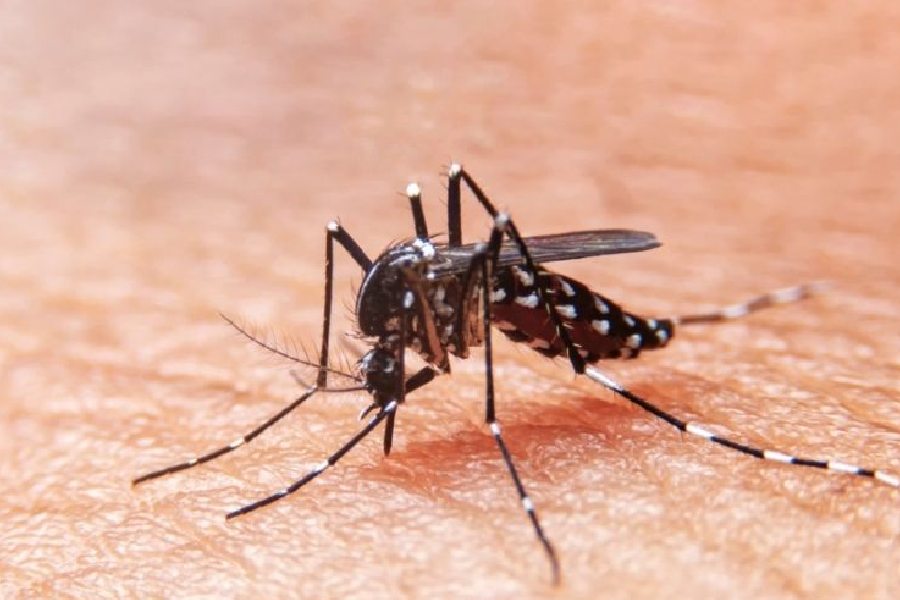The weather conditions are still suitable for mosquitoes to breed and fresh dengue cases are still being reported, though far fewer than the numbers reported in mid-October when the dengue infections reached their peak.
More than 450 dengue cases were reported in the Kolkata municipal area in the week ending November 19, a senior official of the Kolkata Municipal Corporation (KMC)
said.
KMC officials said dengue infections usually reach their peak in October and the numbers start decreasing in November. However, in one year, before the outbreak of Covid, the dengue numbers in Kolkata had reached their peak in November.
Doctors said they are still treating dengue patients and some of them are requiring hospital admission.
“Around five dengue patients are being treated at our hospital,” said Amitabha Saha, head of critical care at AMRI Hospitals, Mukundapur. “It is not that dengue has disappeared, though the number of patients has declined.”
Saha said he is still advising people with fever for two days or more to get tested for dengue. “I am advising dengue tests to patients who are not suffering from cold and cough, but have body ache, headache and fever,” he said.
A KMC official said a lot depends on rain. “If it rains again at the end of November, there could be a halt to the decline in dengue infections,” the official said.
“The impact of rain is felt after a fortnight. Mosquitoes will lay eggs and the virus will incubate inside the new mosquitoes. Once a mosquito carrying the virus bites a human, it takes a few days for the symptoms to emerge. All these take about a fortnight. That is why we see the rise in numbers a few days after the rain.”
The decline, too, starts about a fortnight after it stops raining because it takes several days for the breeding sites to dry up.
The Aedes aegypti mosquito, the primary transmitters of the dengue virus, lays eggs in freshwater. It takes a week since eggs are laid for adult mosquitoes to emerge.
“The humidity and the daytime temperatures are still suitable for mosquito breeding. The drive to destroy all possible sources of mosquito breeding must continue,” the official said.
“There will be dengue infections in December, too, though much fewer in numbers.”
